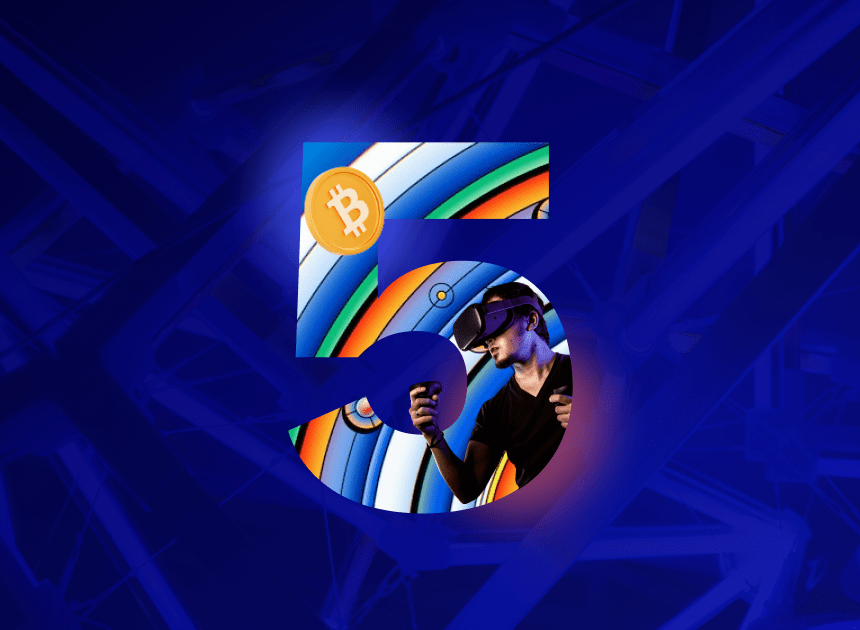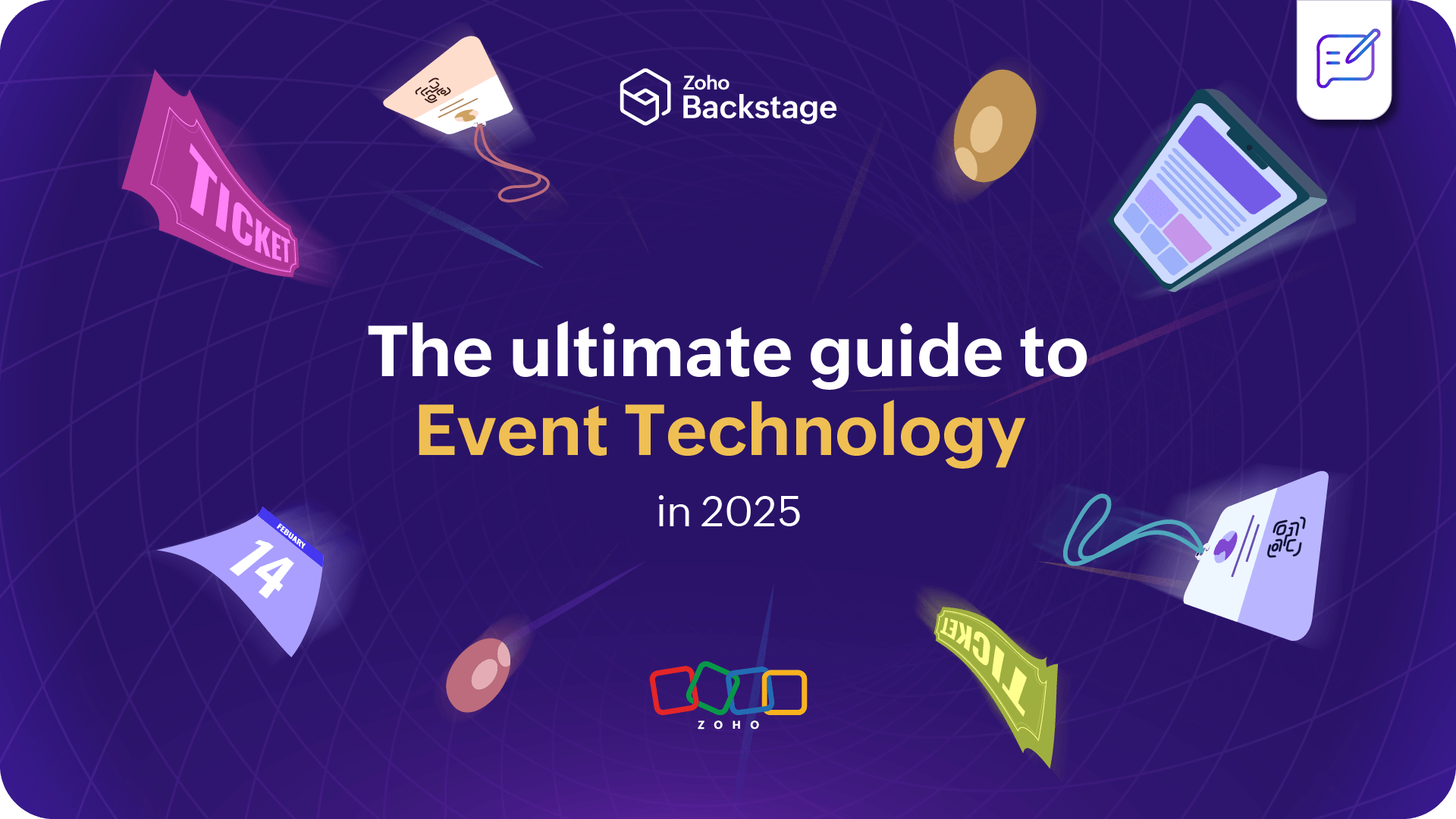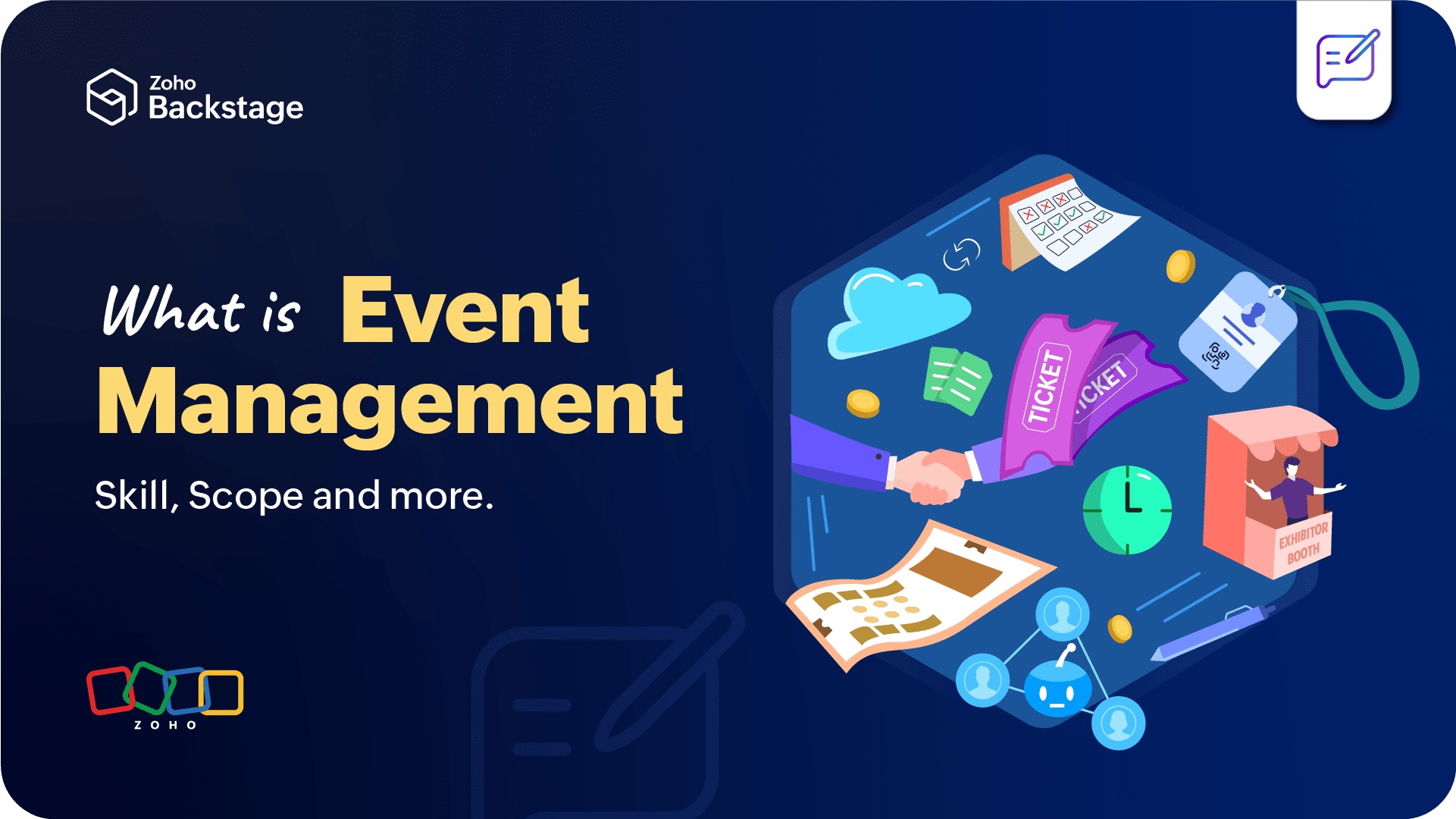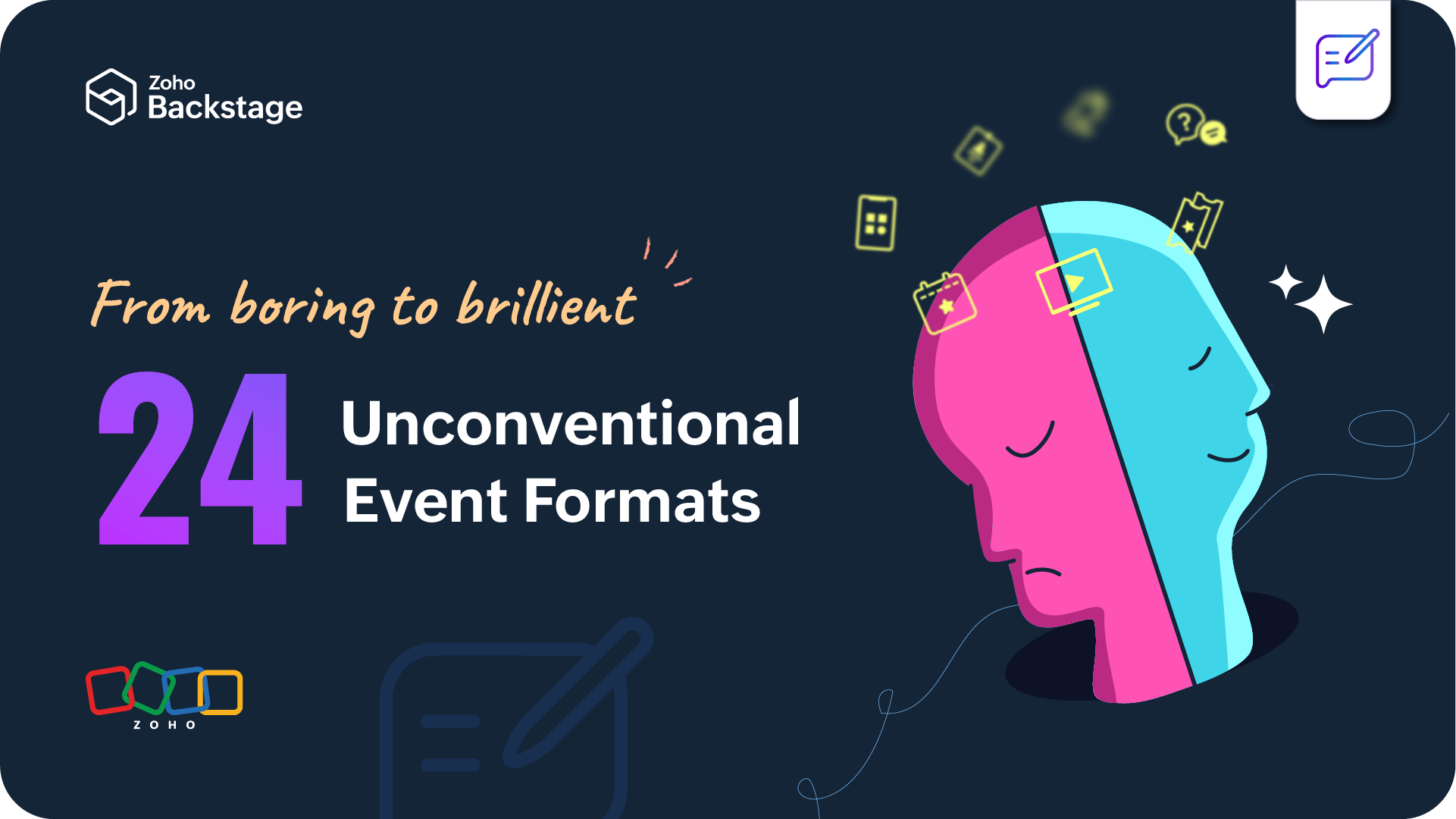- HOME
- Technology
- 5 event tech trends to explore in 2023
5 event tech trends to explore in 2023
- Last Updated : August 18, 2023
- 1.2K Views
- 5 Min Read

One annual tradition that’s almost as old as a New Year's resolution is the question “What’s New?” with articles about everything from the latest trends in business and work culture to fashion, productivity, and even chocolates. The events industry is no different with its own share of articles that predict as many as 20 different trends. Some of them like Skift Meeting even hosted a webinar to dive into some of these trends. (You can view the recording here, if interested)
This year, at The Green Room we’ve narrowed our focus to just event technology. There’s been so much happening in the event technology sector in the last year we thought it deserved an article of its own. Here are five technologies—some of them (like ChatGPT) completely new, some of them (like wearable technology) old but reimagined—that can make a pretty big difference at your events in 2023.
Artificial Intelligence
From tech giants like Google to smaller startups, most companies have been betting heavily on Artificial Intelligence (AI). Last we heard, Microsoft is planning to invest a whopping $10 billion USD in OpenAI (the startup behind 2022’s biggest AI reveal—ChatGPT).
If you don’t know already, ChatGPT is a chatbot that can answer questions, debug code, and even write copy among other things.
What does this mean for event planners? Here’s an answer from ChatGPT itself:
“ChatGPT can assist event planners by providing information and assistance with tasks such as creating schedules, generating agendas, researching venues, creating guest lists, and creating email or message templates for invitations and communications with attendees. Additionally, ChatGPT can also help with on-site event management by providing information and assistance with tasks such as registration, directing attendees, and answering frequently asked questions. Finally, ChatGPT can also generate post-event reports, providing insights on attendee engagement, feedback and suggestions for future events.”
Pretty detailed (and very human), right? Skift Meetings has around 26 event copy templates generated in ChatGPT that show how contextual the chatbot is and how it can speed up a lot of the event planning process.
While ChatGPT is definitely the highlight, AI has been widely used in the last few years to facilitate event networking and attendee matchmaking. Other ways you can use AI at events include personalized content, chatbots (in event apps and websites) for live chat support, facial recognition for event check-in, and more.
NFT ticketing
Another trend that’s been gaining traction in the concert and festival world—especially for ticketing—is Non Fungible Tokens (NFTs). Based on blockchain technology, these are a type of digital asset that has information stored in it. In this case, it’ll be the attendee details. Some benefits of using NFTs as event tickets include:
Less possibilities of ticket fraud as it is difficult to replicate them or create counterfeit copies
More data points like the demographic details of attendees, resale history of the ticket, and more
NFT tickets can include additional multimedia elements like art, audio, or videos that can increase their resale value (and give event planners more data on attendee interactions)
Some notable brands that have used NFT tickets in the past include Coachella and Kings of Leon. It’s not just music festivals either. There have also been quite a few instances of conferences and art shows that have successfully used NFTs in the past. Many event tech platforms have also started supporting NFTs in the last year, and as the technology matures, we'll definitely see more events adopting these.
Also, if you’d like to learn more about web3 and NFTs at events, Julius Solaris has a mini ebook on the topic. You just have to DM him for a copy of it.
Metaverse
Back in October 2022, Meta asked its employees to host their internal meetings and events in VR. CES 2023 is said to have a hall allotted for metaverse technology. We’ve also seen a whole breed of event tech platforms calling themselves Metaverse Virtual Event Platforms.
For the longest time people said it was the lack of technological development that held the metaverse from reaching it’s full potential at events. With technology finally catching up, there’s a lot of opportunities to host immersive virtual experiences in the metaverse.
If you’re still skeptical about the technology, you can start small by hosting mini-virtual networking events in the metaverse or using VR for product demos at your in-person events. Here’s a LinkedIn post by Shawn Cheng where he elaborates on some ways eventprofs can incorporate AR and VR in a smaller way at their events.
Wearables
Noise reduction headphones, smart badges, wristbands, and even smart glasses are some of the wearables that are getting popular at events. Recently, Event Tech Live partnered with Silent Seminars to stream audio at sessions and reduce noise. Just after the pandemic, RFID bands were also used to maintain social distancing and alert attendees when they were within a six-feet radius of another person.
One easy way you can use wearables at your event is by providing attendees with smart badges for easy (and contactless) check-in, payments, and contact-sharing. Another is RFID or NFC bands to notify them when they cross a certain booth or activity area or that they can download content by tapping a device or terminal.
Wearables also come with an incredible amount of data like attendee footfall patterns, popular sessions or exhibitors, and more that will be useful for both event organizers and sponsors.
Event apps
A basic version of the event app—one that allows attendees to view the agenda, bookmark sessions, and participate in community forums—has existed for almost a decade now. It’s come a long way since then. These days, event apps can take attendee networking and engagement to a whole new level with options like AI-based matchmaking, 1:1 meetings, social walls, virtual photo booths, indoor navigation maps, and so much more.
Gamification, in particular, has seen a huge adoption rate at events. Some common gamification features available in event apps are:
Leaderboards
Challenges
Raffles and drawings
Contests
Some niche apps also allow you to create games like scavenger hunts, puzzles, and quizzes. To get the most out of event gamification, it's important to ensure that the games and challenges are in line with the goals and objectives of the event.
Beyond the big trends are some smaller ones like geo-fencing, event diagramming, beacons, and more that have been around for the last three to four years and are slowly picking up speed at events. We also expect to see more “experiential” or “immersive” events with more interactive experiences and brand activations.
So, what event tech trends are you most excited about? Tell us by commenting below or tweeting us @ZohoBackstage. We’d love to know. :)
 Nisha
NishaMarketing and content at Zoho Backstage. Cultural misfit. Armchair traveler. Productivity geek. Sometimes, I write poetry. Sometimes, it rhymes.






